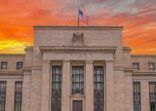For the rest of 2023, investors should focus on high-quality companies across credit and stock markets.
“We advocate investors put their excess cash to work in portfolios, employing our barbell strategy,” said Hou Wey Fook, chief investment officer of DBS Bank.
To generate income, the priority should be a mix of higher-quality corporate bonds and low-risk government bonds to secure steady yields amid volatile times, he explained.
For growth, meanwhile, Hou believes investors should stay with winners of the digitalisation trend, “We remain overweight US equities where IDEA (Innovators, Disruptors, Enablers and Adapters) companies are well represented.”
At the same time, as a complement to a diversified portfolio of traditional investments, DBS Bank supports efforts by investors to build long-term exposure to private assets. “[They] provide active ‘alpha’ returns independent of market direction,” he added.
Bonds as the next yield play
With lower growth and lower inflation pointing to a peak in US policy rates, yet rate cuts not likely to happen anytime soon, DBS doesn’t see the current environment as conducive to risk assets.
Instead, the increasing prospect of a “soft landing” for the US economy has put bonds in the spotlight.
“The 5% to 6% annual coupon income from holding investment grade (IG) bonds is preferred over dividend-yielding equities and cash deposits as the next yield play,” explained Hou. “In addition, if there are exogenous events that lead to market dislocations, IG bonds would cushion the overall portfolio against any sharp drawdown in equities.”
Amid DBS’ preference in asset allocation for bonds over income equities, the bank believes a recalibration of the “search for yield” portfolio strategy is now necessary as bond yields are expected to stay “higher for longer” given hawkish monetary tightening in response to the post-pandemic inflation surge.
DBS research shows that since August 2022, the blended yield for bonds has surpassed the dividend yield for income equities. “This suggests that the addition of income equities no longer boosts the overall yield of a portfolio,” said Hou. “Therefore, at this part of the market cycle, we prefer bonds over income equities from a yield perspective.”
At the same time, he expects elevated bond yields to weigh on growth equities from a valuation perspective.
“Companies with weak profitability and cash flows will be most severely impacted. On the other hand, quality plays are set to outperform. As costs of capital rise, companies with strong fundamentals to withstand the challenging environment are preferred by portfolio allocators,” Hou added.
Patience needed in China
As for a China strategy, DBS is awaiting a policy catalyst to revive interest.
For the time being, a de-risking of China-related exposure is gathering steam. The bank has doubts over hopes of massive policy stimulus to stem systemic concerns about the real estate sector and shadow banking space. “While the People’s Bank of China has cut lending rates, existing policy measures are not significant enough to give the economy the massive boost it needs,” added Hou.
As a result, the bank’s call on Asia ex-Japan continues to underwhelm given the overall weakness in China equities.
“On the flipside, given the sharp run-up in developed market equities, China appears attractive from a valuation perspective,” said Hou. “A strong dose of policy stimulus will rekindle animal spirits for the market.”

















